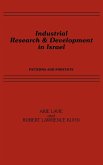This study examines the development of capitalism in Israel. Taking a different view from the traditional modernization perspective, Ben-Porat argues that since 1948--when Israel became a state--the process of forming a capitalist society has underlain all other major processes. To explain capitalism in Israel, a perspective is needed that treats the problems of implanting capitalism in post-colonial states. Problems include the undeveloped class structure; the inability of the bourgeoisie to fulfill its capitalist role; the continuing post-colonial dependency on state support; and, most importantly, the central role of the state in enhancing, but also regulating, capitalism.
Bitte wählen Sie Ihr Anliegen aus.
Rechnungen
Retourenschein anfordern
Bestellstatus
Storno









